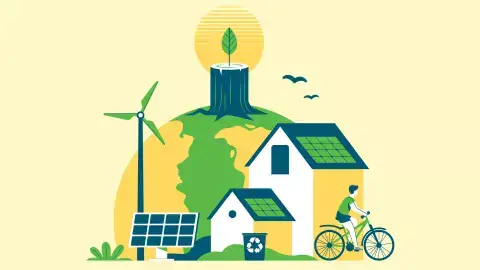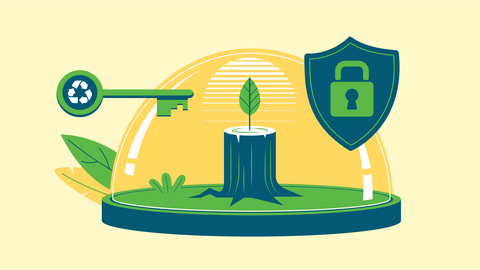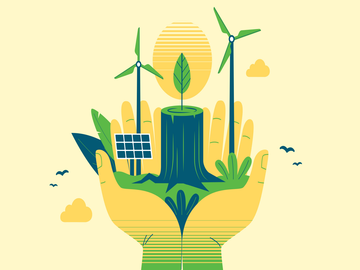Faith and Ecosystem Restoration
It is increasingly recognised that faith leaders and faith-based organizations (FBOs) are essential contributors towards attaining the Sustainable Development Goals (SDGs) and addressing environmental and climatic crises. Acknowledging this, the United Nations Environment Programme (UNEP) launched the Faith for Earth Initiative to strategically engage with FBOs, mobilise greater faith-inspired environmental action, scale-up faith actors’ capacities and catalyse greater synergies between them and other stakeholders. This short, self-paced, e-learning course, focusing on ecosystem restoration and biodiversity conservation, forms part of this commitment.
Healthy, stable and biodiverse ecosystems are the foundation for the well-being of humans and all other species. Ecosystem services provide an abundance of invaluable material and immaterial benefits to humans. Despite this, terrestrial, freshwater and marine ecosystems have deteriorated at an alarming rate due to human activity, placing the future of our species, and many other species, in danger. Addressing these global issues requires the engagement of all sectors of global society, with this coursefocusing on the role of faith actors, drawing on the particular qualities and comparative advantages they have.
KAICIID launched the FAITH4SDGS Project. More information and material can be found here: https://www.kaiciid.org/content/sustainable-development-goals-sdgs
This course is designed for religious leaders, faith-based organizations, civil society, non-governmental organizations, UN agencies, other multilateral institutions, government officials, policy and decision-makers and individuals interested in this subject. Whilst the focus is on faith actors, faith perspectives and faith-led action, this course seeks to contribute to building synergies amongst different stakeholders, highlighting the value of engaging with faith actors in addressing this challenge.
The goals of this course are:
- To build the capacity of faith actors by equipping them with the necessary knowledge and resources to help them engage in effective ecosystem restoration and biodiversity protection.
- To demonstrate the added-value that faith actors bring in addressing these issues.
- To contribute to the achievement of the SDGs, particularly SDGs 14 and 15.
At the end of this course, participants will:
- Understand the scientific evidence demonstrating the extent of ecosystem degradation and biodiversity loss and how these are the result of human activities.
- Understand the scale and threat of these issues and why it is so urgent that action be taken to address them.
- Recognise different ways, mechanisms and global strategies to address these issues, with emphasis on the role of the UN system.
- Have knowledge of faith perspectives, as they relate to ecosystems and biodiversity, and how these can be used for inspiration to mobilise action.
- Have seen examples of faith initiatives tackling ecosystem degradation and biodiversity loss, demonstrating the value of engaging with faith actors.
- Have guidance and resources on how to address these issues, with an emphasis on the role of faith actors.
Since its inception in 1972, the United Nations Environment Programme (UNEP) has been the global authority that sets the environmental agenda, promotes the coherent implementation of the environmental dimension of sustainable development within the United Nations system and serves as an authoritative advocate for the global environment. UNEP’s mission is to provide leadership and encourage partnerships in caring for the environment by inspiring, informing and enabling nations and peoples to improve their quality of life without compromising that of future generations. UNEP works closely with its 193 Member States and representatives from civil society, businesses and other major groups and stakeholders to address environmental challenges through the UN Environment Assembly, the world’s highest-level decision-making body on the environment.
This interactive digital course is specifically designed for busy professionals who do not have time to take the longer, moderated eight-module course on ‘Faith, Environment and Climate Change’. They can now select the relevant thematic topics and modules and learn on the go. Administered through a Massive Open Online Course (MOOC) platform, this short course takes around two hours to complete and can be taken anywhere, anytime, at a pace that suits and from a phone or a computer.
Modern and updated browsers.
A Certificate of Completion will be issued to participants who achieve a minimum total score of 70%.
E-Learning in IRD designed for the general public


